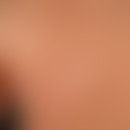Biographical detailsThis section has been translated automatically.
(¤ 1893, 1970) Dermatologist, dermatological training at the University Dermatological Clinic in Giessen. 1925 Habilitation. 1929 appointment as associate professor in Giessen. 1934 briefly clinical director of the University Dermatological Clinic in Frankfurt am Main. 1934, as successor to Bodo Spiethoff, appointment as full professor at the University of Jena. 1935, as successor to A. Jesionek, he was appointed to the dermatological chair at the University of Giessen. The reason given for granting the Giessen full professorship to Schultze was that he had "played a decisive political role in the penetration of the revolution into the sphere of the university." In Giessen, he became the local leader of the National Socialist German Association of Lecturers (NSDDB) and head of the lectureship. Schultze was also a National Socialist "confidant" at the university and a member of the NS Medical Association. In 1944, he was a member of the scientific advisory board of the Plenipotentiary for Health Care. Schultze's negative role during the National Socialist era is undisputed. Thus, he described a new form of "action against asocial venereal patients" and expressed: "Doctors must no longer be content to treat a venereal patient with more or less success, but we must actively attack the evil at its root. We recognize an enemy and attack him, no matter where we find him". In other words, the patient was "declared" an enemy and was treated as such. Schultze, who had already joined the NSDAP in 1931 and liked to boast about his lowly party book number, forcibly barracked the patients in a labor camp: the duration of the asylum depended on the previous life. "Since the asocial sex patients are clinically without appearance, they can all work. We want to put the work-shy ones on other paths by strong physical demands, to discipline them and then to have a deterrent effect on others." Schultze was removed from office in Giessen in 1945. In 1946, Schultze was dismissed from all offices, but was able to open a private practice. From 1950 he was again active as a full professor in Giessen until he was made emeritus in 1958. The management of the Dermatological Clinic, which had been severely damaged during the war, was taken over by his former senior physician Hans Koehler from 1945-1949.
LiteratureThis section has been translated automatically.
- Weyers W (2002) Dermatology under National Socialism - the decline of a special field. Writings of the Collegium Europaeum Jenense, Issue 25




